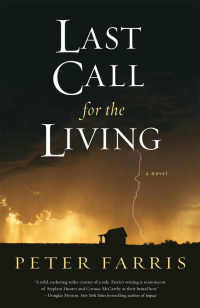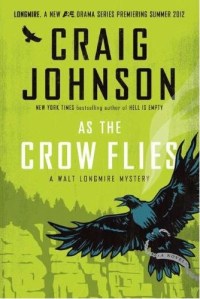Last Call for the Living by Peter Farris
 Wednesday, May 23, 2012 at 8:04AM
Wednesday, May 23, 2012 at 8:04AM 
Published by Forge Books on May 22, 2012
Friendless, obsessed with rocketry, and only "partially present for any human interaction," Charlie Colquitt is, in the words of his Savings & Loan manager, "destined to be lonely and largely unnoticed." He is, however, noticed by Hobe Hicklin, the recently released convict who robs the S&L before it opens, when only Charlie and the manager are present. For reasons that are never quite clear (other than advancing the plot), Hicklin takes Charlie hostage. For reasons that are extraordinarily coincidental (although they also advance the plot), Hicklin decides not to kill Charlie even when he has no apparent value as a hostage. Instead, Hicklin keeps Charlie in a cottage in the hills where his tweaker girlfriend, Ellamae (a/k/a Hummingbird), uses Charlie as her boytoy.
The robbery displeases Hicklin's two partners, Leonard Lipscomb and Nathan Flock, because he pulled off the heist without their involvement, keeping the proceeds for himself. It also displeases Sheriff Tommy Lang. Unequipped to deal with major crimes, Lang leaves the investigation to Sallie Crews of the Georgia Bureau of Investigation. Actually, Lang is unequipped to deal with life, although he manages to cope with ample doses of whiskey and beer and occasional nights with Kalamity, who owns a seedy bar.
Jubilation County, Georgia, where this all takes place, is the sort of sparsely populated area where everyone knows everyone -- and they've probably slept together. The county's unsavory residents certainly have an inbred quality. Violence pervades the story; it is a way of life.
The plot of Last Call for the Living is simple without being simplistic. Peter Farris generates and maintains suspense without employing the contrived plot twists that often disguise a writer's inability to create credible characters. Farris' characters are filled with weaknesses and woes, and none of them (except perhaps for Charlie) is particularly likable. Lang, tortured by the atrocities he's witnessed, is a lush. Lang is far from heroic, making him a refreshing law enforcement figure. The criminals are creepy, but Farris understands the dehumanizing nature of incarceration in maximum security prisons and he has a good handle on the prisoner's mindset, making it easy to understand the source of the ex-cons' creepiness. There were even times (admittedly, not many) when I felt sorry for Hicklin, a man who wonders if his life could have been different, even if he's incapable of change. More intriguing is Charlie, who might be able to change ... but in what way?
About two-thirds of the way through the novel, the story seems to have reached its end. Instead, the narrative pauses, takes a breath, and races onward to the best scene in the book. It takes place in a church, during a service held by one of those freakish faiths where congregants handle snakes and speak in tongues. The plot moves to its heated conclusion from there. The concluding chapter doesn't spell everything out; it leaves room for the reader's imagination to fill in the gaps.
While Last Call for the Living is fast moving and well written, it contains no surprises. Predictability is its most serious weakness (reliance on coincidence is a close second). The story is nonetheless worth reading for its strong characterizations, its entertaining moments (of which there are many), and its tense climax.
RECOMMENDED



